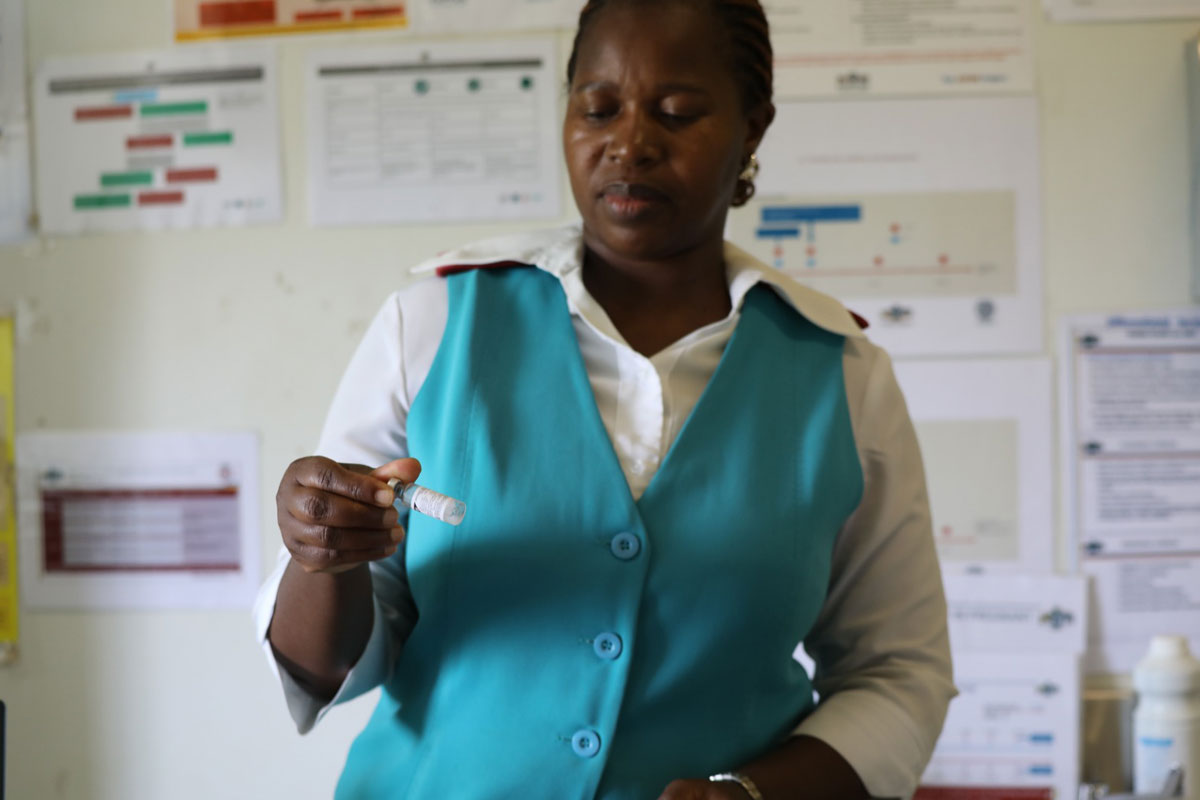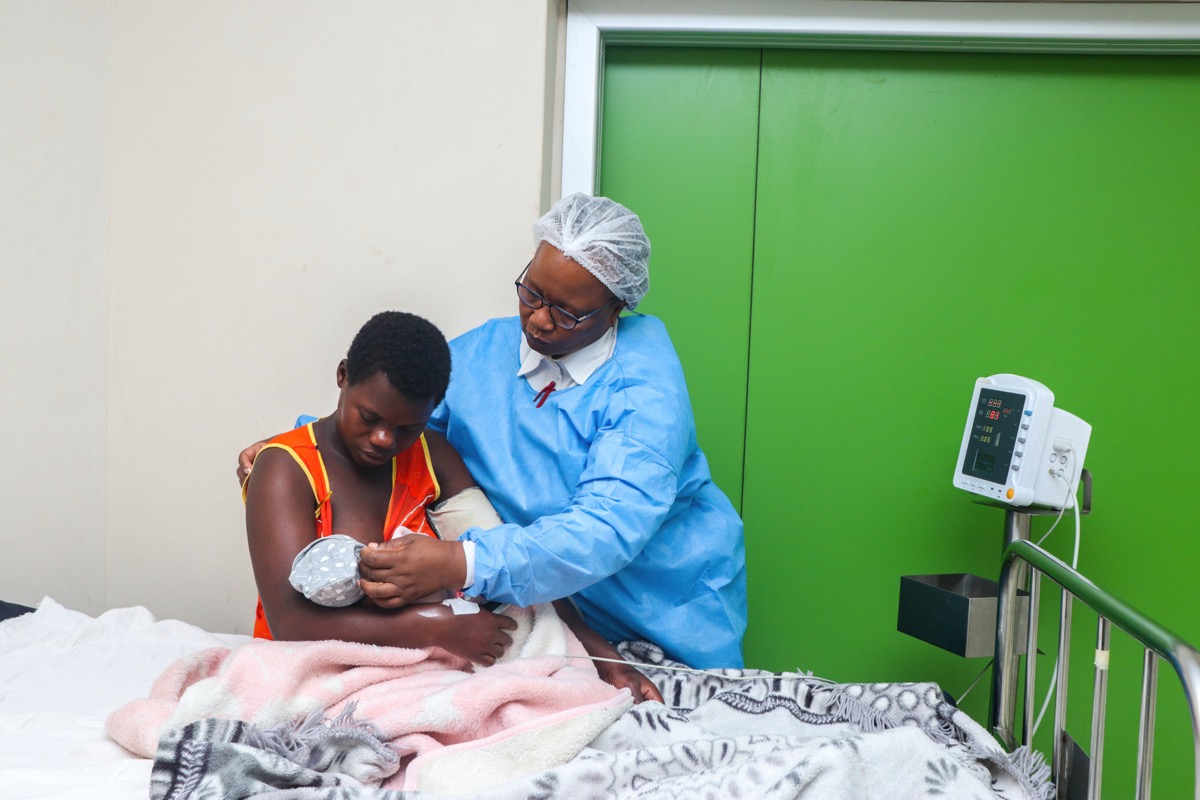The Nurse’s Orders: how a student nurse is turning social media into a lifesaving tool
Armed with evidence and a gift for simplifying medical jargon, Meluleki Ndwandwe is on a mission to empower Eswatini’s youth with facts, not fear.
- 4 July 2025
- 5 min read
- by Nokukhanya Musi–Aimienoho
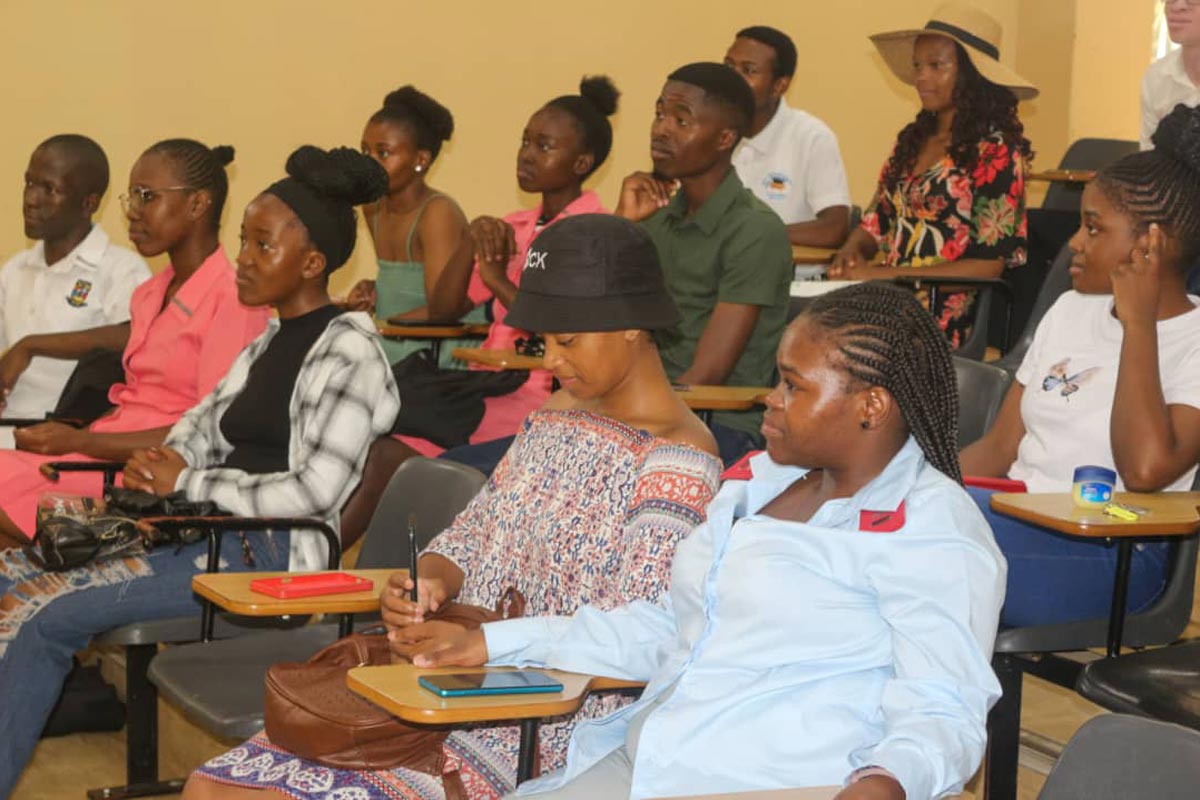
As the sun rises over Eswatini, 21-year-old nursing student Meluleki Ndwandwe sits, hunched over his desk in his university dorm room, uploading posts to social media.
Numerous tabs are open on his screen – research papers and studies on cervical cancer, human papillomavirus (HPV) vaccine info sites and health-related news. He has made it his business to post the latest and most accurate information, to catch the youth up on health issues that might affect them.
One recent development he’s broadcasting to his following is the news of the recent extension of the HPV vaccination programme to young women between 15 and 20 years of age. Hitherto, the jab was publicly available only to girls between 9 and 14 years of age.
His aim, he says, is to spread awareness of the importance of vaccination, to clear up misconceptions, and present people with well-substantiated information on which they can base the choices that might save their lives.
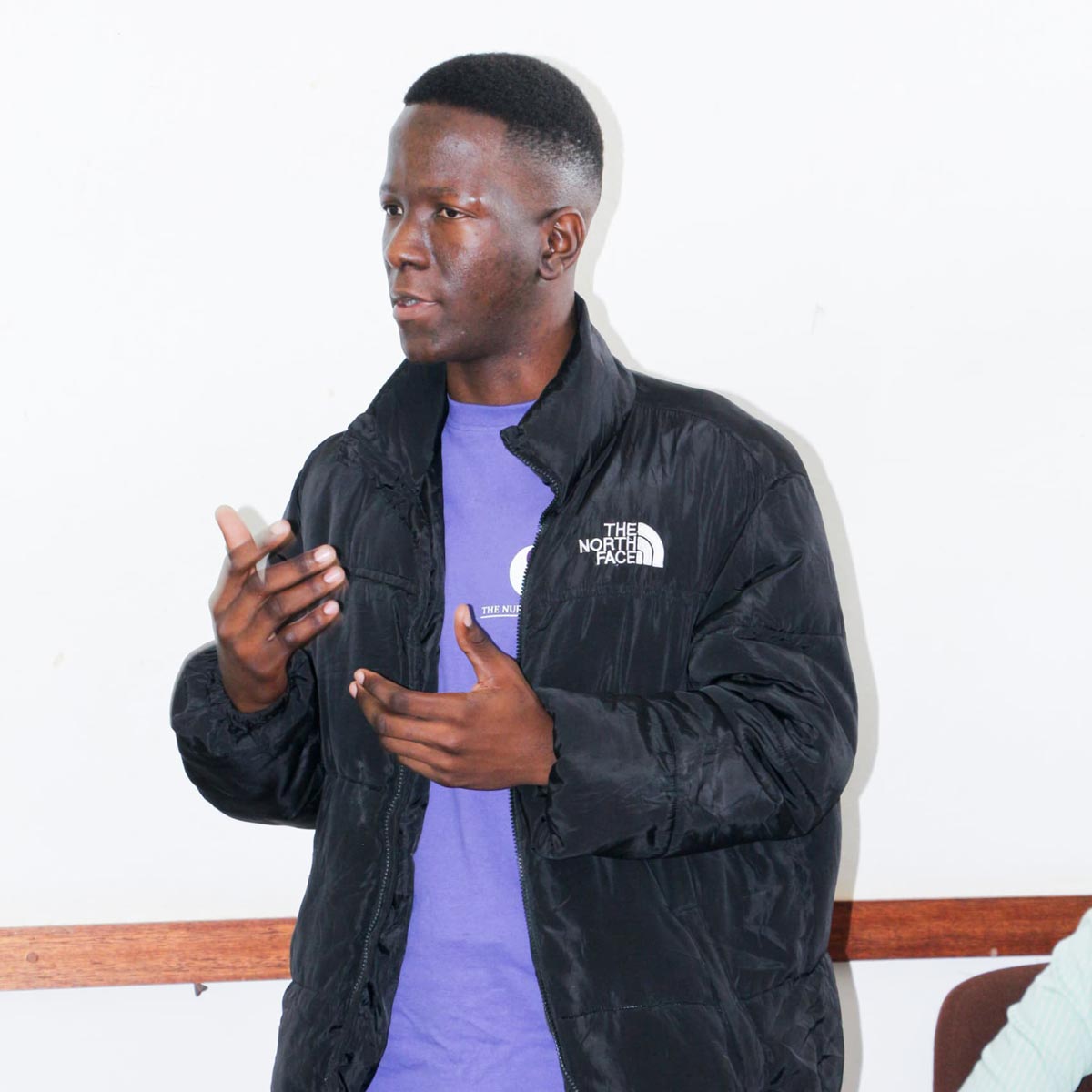
Reaching young users
Ndwandwe’s social media crusade is responding to a very present threat. Cervical cancer accounts for a staggering 54.6% of all cancer cases among women in Eswatini, with a five-year prevalence of 185 cases per 100,000 women.
Driven by a personal purpose after observing friends and relatives harmed by health misinformation, he formed an organisation called The Nurse’s Orders, an online consultation service, in 2024, to empower young people through the provision of accurate health information.
“I had the idea for a long time but it was officially implemented last year to disseminate health educational information to the young demographic. I noticed that the youth do not listen to traditional radio health shows and are always on social media. Leveraging this newfound community that is literally in the palm of our hands became my first objective. So I launched our Facebook and YouTube pages,” he shares.
Ndwandwe has a unique gift for simplifying complicated technical medical jargon into comprehensible bite-sized chunks, using colloquial and locally-inflected language to bring his messages to his target audience.
The idea, according to Ndwandwe, was further backed by his observations during community health nursing and school health promotion practical sessions.
“I saw that this lack of information often leads the youth to make poorly-judged health decisions, which fuelled my desire to start the organisation. It began with a link to a page that had zero followers, with just me as a member. Soon, others joined,” he adds. The organisation now has an active presence on Facebook, TikTok, and Instagram.
Keeping it simple, keeping safe
Ndwandwe has a unique gift for simplifying complicated technical medical jargon into comprehensible bite-sized chunks, using colloquial and locally-inflected language to bring his messages to his target audience.
Messages and comments flood his inbox. He devotes time to carefully answering each note. Furthermore, he keeps a close watch on social media daily to correct misinformation with fact-checked comebacks.
The Nurse’s Orders’ success stories include an initiative named the Triple Protective Armour, which delivers lessons on three health subjects that are relevant and intertwined in Eswatini: HIV prevention, family planning and mental health.
During live sessions with health experts, representatives from The Nurse’s Orders have brought the Triple Protective Armour to numerous campuses, employing poetry and interactive discussions to enliven the messaging.
“Our initial outreach event, organised for cervical cancer awareness month, combined health education and poetry, and also tackled gender-based violence. [The event] made it into the national media, which was our greatest reach extension, off-campus, to date,” he says.
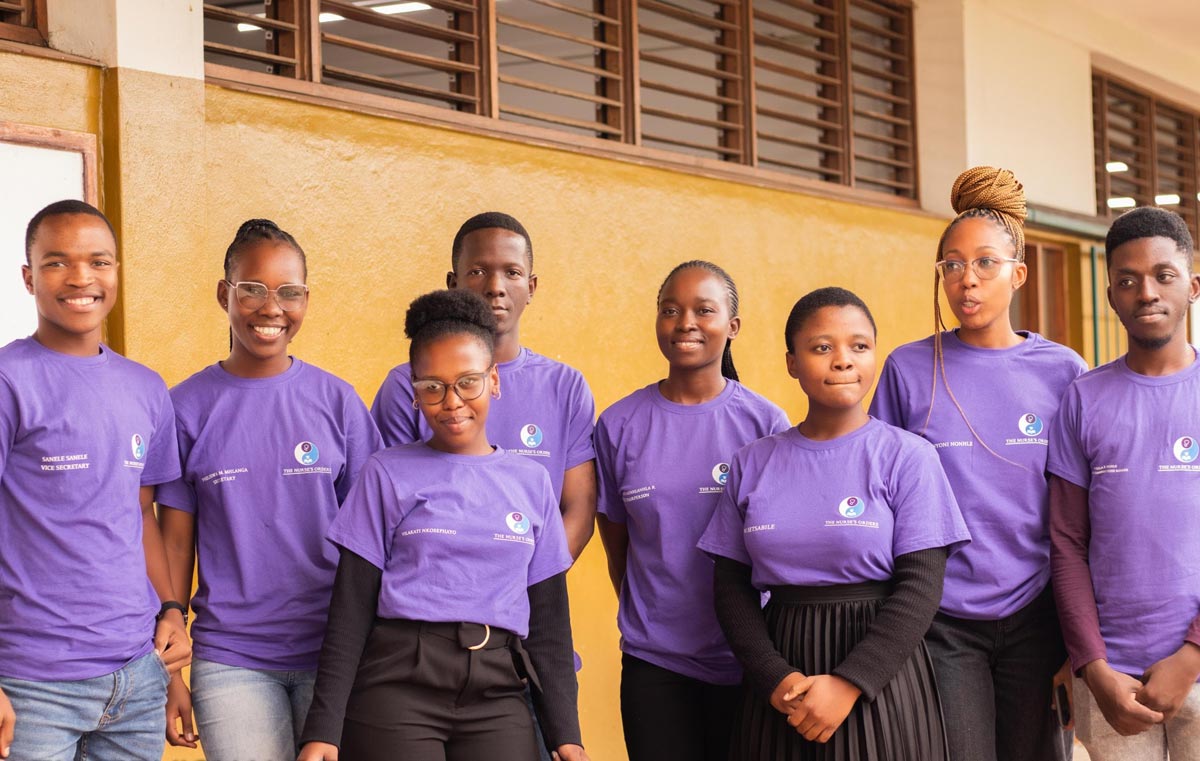
Building a “library”
Despite financial constraints that hinder Ndwandwe and his group from embarking on a national tour, campus to campus, they have established a website that they hope will become a definitive library of health information, providing vital information to everyone in Eswatini.
“We utilise our social media platforms for information-sharing and continue to look for ways to innovate people’s engagement,” he continues.
Nokulunga Dlamini and Bunny Maseko are female university students who say The Nurse’s Orders helped shape their own health choices. “Having access to all the relevant information enabled me to make informed decisions about the HPV vaccine,” Dlamini says.
Maseko is also grateful to The Nurse's Orders for sharing relevant facts and helping to demystify the fears of possible vaccine side effects.
Ndwandwe, meanwhile, points out that HPV is not just a woman’s problem. “Men also get HPV. By educating all people, we not only save women from cervical cancer, but ensure men understand what their risks are so they practise safely and discuss sexuality openly,” he states firmly.
Have you read?
Eswatini’s HPV mission
The Eswatini government, with Gavi’s support, introduced the HPV vaccine for adolescent girls in 2023.
Recently, in light of Eswatini’s exceptionally high cervical cancer rates, the Health Ministry extended the age-range for HPV vaccine coverage to include girls and women aged 15–20 years.
Nsinidiso Tsabedze, the Health Ministry Communications Officer, explains that social media plays a central role in creating awareness about HPV vaccines among young people.
“The Ministry has conducted targeted campaigns to make adolescent girls and their caregivers aware, in collaboration with the World Health Organization, with live Q&A sessions to dispel myths,” he adds.
In order to mobilise young people and counter vaccine resistance, according to Tsabedze, the Ministry created youth-led community forums in low-coverage districts, where discussions on misinformation and individual experiences have taken place.
Partnership with the Ministry of Education has also resulted in joint information campaigns in schools, where teachers assist in breaking down unfounded rumours regarding vaccine safety.
“Schools are also major settings for conducting vaccination campaigns, increasing reach in known environments,” says Winile Mavuso of the WHO.
Professor Priscilla Dlamini, a public health specialist, agrees: “Education will change behaviour and foster preventive action. Nurses must undertake community education to assist vaccination efforts, particularly in rural communities,” she states.
Xolisiwe Dlamini, the Expanded Programme on Immunization (EPI) Manager, asserts that the programme is adapting to meet adolescents’ needs. “In spite of the setback experienced in reaching higher learning students for vaccination, creative approaches such as electronic media awareness are being employed,” she acknowledges.
The combined action of the government, its key partners and champions such as Ndwandwe are essential to promoting a culture of prevention against cervical cancer in Eswatini.
